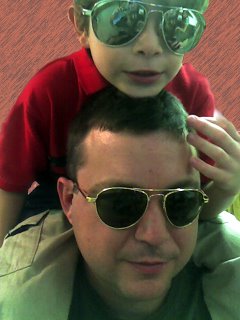Jessie's Thoughts on her time in the Clinic
(Jessie Beldyk is a college student borrowed from the Hurricane church. She is one of young ladies working in the clinic)
Shielded by a Powder-Puff sticker emblazoned clipboard and armed with the seventh soon-to-be misplaced pencil of the day, I weld off the teeming mass of shouting niños and empathetic “mamás.”
“Numero sesenta y ocho” I shout over the crowd. “Sesenta y ocho!,” a single mother echoes my words. Hurriedly, she collects her things: an oversized “muñeca,” the half-eaten bag of “chetos”, a lone surviving plastic cup of “agua.” And then, her children: “¡Martin!” “¡José!” She hollers over her shoulder.
On the crooked pink bench, a make-shift table, they’ve spent the last three hours crafting away while their mother sweltered in the intense heat only relieved by an enormous propeller fan situated a mere sixty feet away.
The mother appears drained physically, perhaps even emotionally. And, the young boys, sweat basted and dirt seasoned, are exhausted. Yet, there is an aura about the family, one of adamancy and optimism. It’s an attitude unfamiliar to me, one which I’ve rarely encountered and almost definitely never experienced. But, I like it. It gives me hope, encourages me.
Simply, I can’t help but smile. “¡Holá! ¿Comó estas?”
Inevitably, like is the eminent trend in Mexico, she smiles back. Grinning wildly, the boys’ faces light up. “¡Bien! ¡Bien!” their voices combine in a sweet chorus.
I love Mexico.
My job is not altogether too tricky: Greet. Check ages. Indicate gender (a much simpler job here than in “Los Estados Unidos”—a much more sexually diverse environment). Weigh. Take a height measurement. Direct to blood pressure station.
Got it? I do…well, most of the time.
There is that slight hindrance, the inevitable language barrier. There are questions, lots of questions, lots of questions that I don’t completely understand. But, it’s all good. I’ve come to heavily rely on the aid of the translators and their much more vast vocabulary base to answer and solve the trivial matters so arisen.
How congenial the clinic patients remain amazes me. “Gracias. Gracias,” they persist in telling me. But really it should be me saying “Gracias a ti.”
Shielded by a Powder-Puff sticker emblazoned clipboard and armed with the seventh soon-to-be misplaced pencil of the day, I weld off the teeming mass of shouting niños and empathetic “mamás.”
“Numero sesenta y ocho” I shout over the crowd. “Sesenta y ocho!,” a single mother echoes my words. Hurriedly, she collects her things: an oversized “muñeca,” the half-eaten bag of “chetos”, a lone surviving plastic cup of “agua.” And then, her children: “¡Martin!” “¡José!” She hollers over her shoulder.
On the crooked pink bench, a make-shift table, they’ve spent the last three hours crafting away while their mother sweltered in the intense heat only relieved by an enormous propeller fan situated a mere sixty feet away.
The mother appears drained physically, perhaps even emotionally. And, the young boys, sweat basted and dirt seasoned, are exhausted. Yet, there is an aura about the family, one of adamancy and optimism. It’s an attitude unfamiliar to me, one which I’ve rarely encountered and almost definitely never experienced. But, I like it. It gives me hope, encourages me.
Simply, I can’t help but smile. “¡Holá! ¿Comó estas?”
Inevitably, like is the eminent trend in Mexico, she smiles back. Grinning wildly, the boys’ faces light up. “¡Bien! ¡Bien!” their voices combine in a sweet chorus.
I love Mexico.
My job is not altogether too tricky: Greet. Check ages. Indicate gender (a much simpler job here than in “Los Estados Unidos”—a much more sexually diverse environment). Weigh. Take a height measurement. Direct to blood pressure station.
Got it? I do…well, most of the time.
There is that slight hindrance, the inevitable language barrier. There are questions, lots of questions, lots of questions that I don’t completely understand. But, it’s all good. I’ve come to heavily rely on the aid of the translators and their much more vast vocabulary base to answer and solve the trivial matters so arisen.
How congenial the clinic patients remain amazes me. “Gracias. Gracias,” they persist in telling me. But really it should be me saying “Gracias a ti.”


0 Comments:
Post a Comment
<< Home